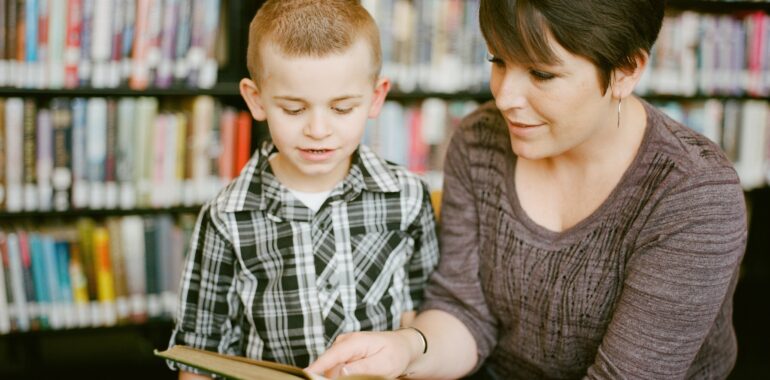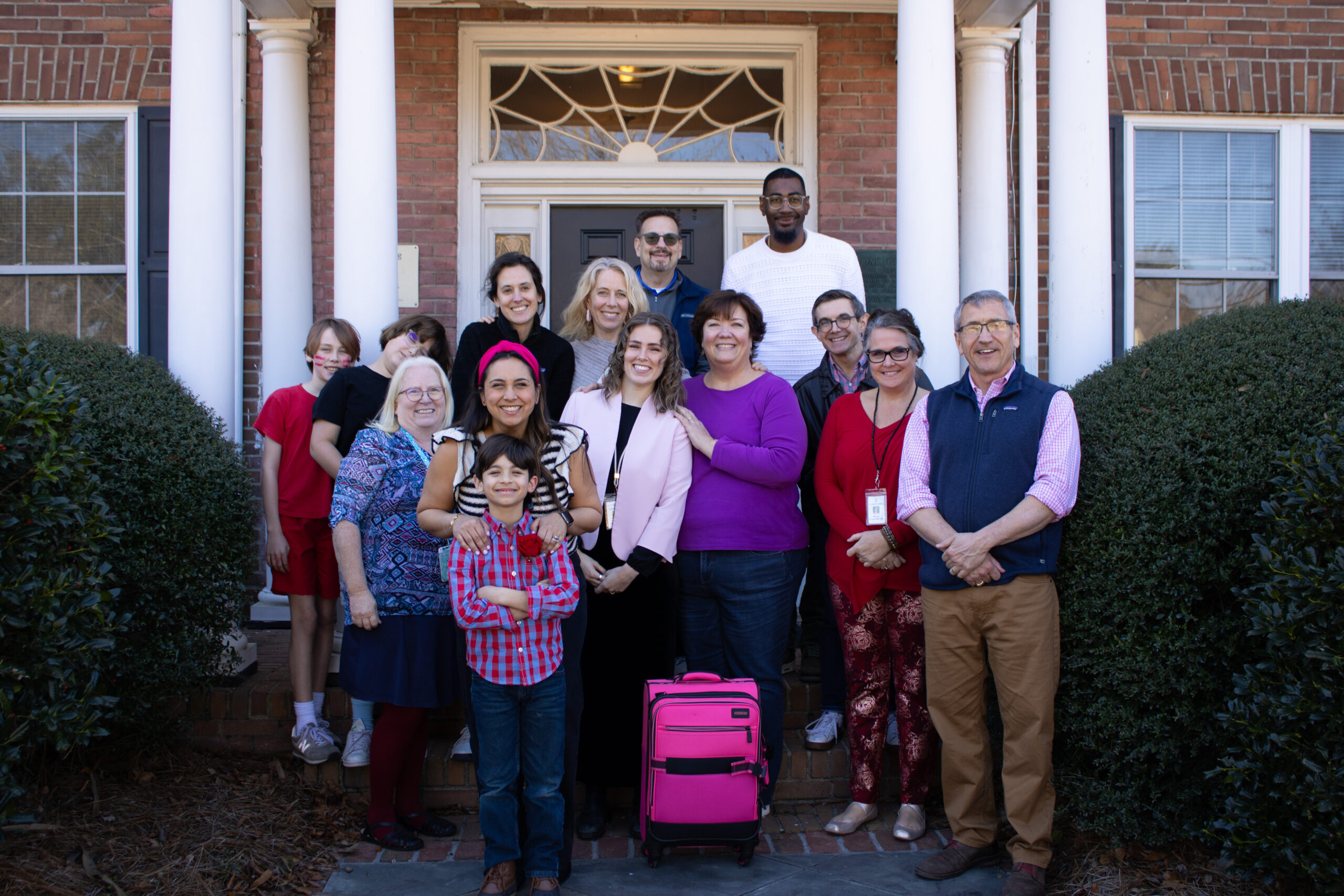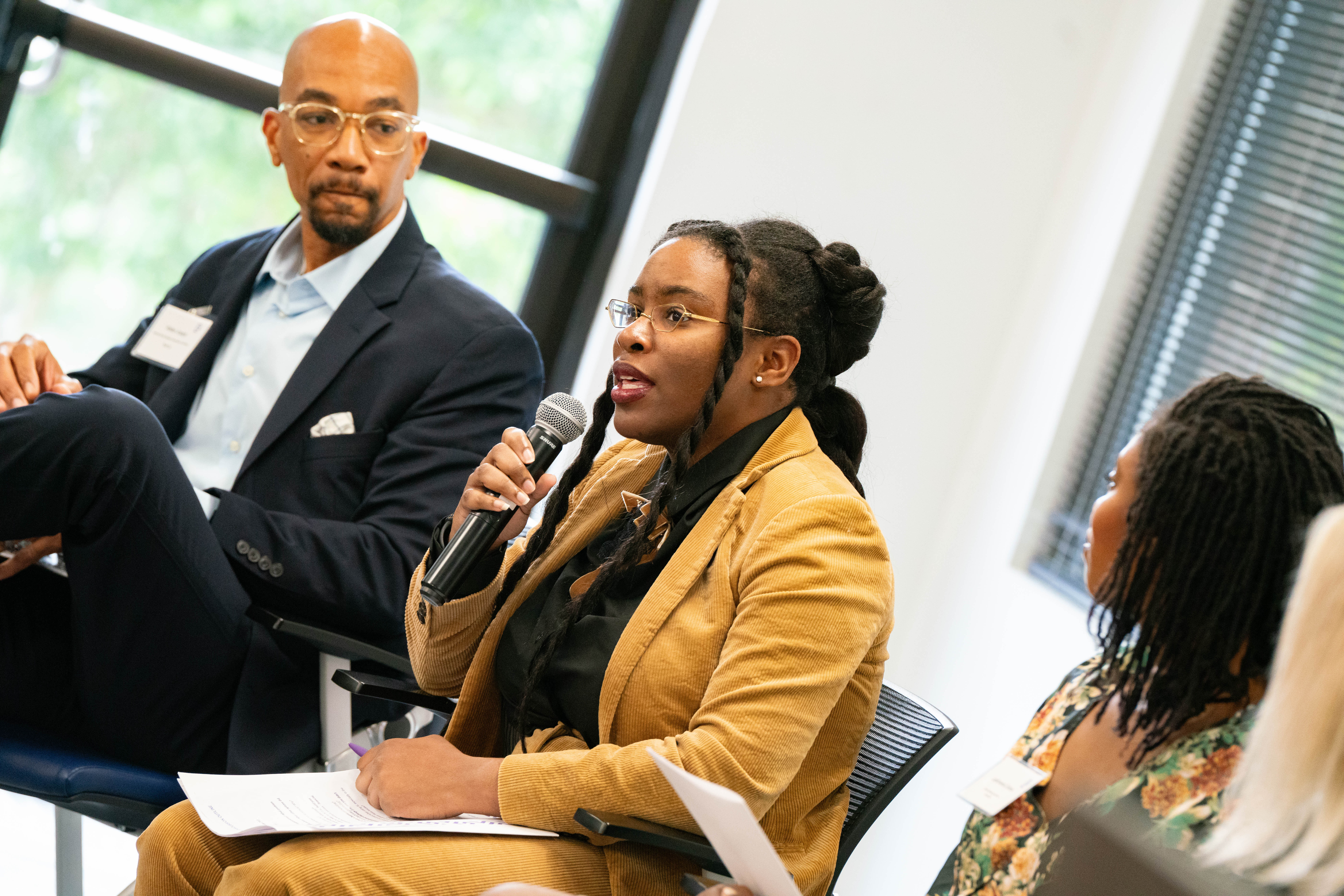NOTE: As of Feb. 29, 2024, Carolina Youth Development Center (CYDC) has rebranded to Landmarks for Families. Our nonprofit, community programs and residential services remain committed to cultivating thriving youth and families in this new chapter.
We understand the importance of strong families. Our team holds the fundamental belief that children and families belong together, and we are committed to providing services that educate, preserve, support, or reunify the family unit. At Carolina Youth Development Center, our focused efforts lead children and families toward the best possible outcomes by using proven methods such as the Teaching-Family Model (TFM) as a framework for all of our programs and services.
What is the Teaching-Family Model?
The Teaching-Family Model is an evidence-based approach to providing services for children and youth who have experienced trauma and abuse. Developed in the 1960s by Dr. Montrose Wolf and his colleagues at the University of Kansas, the model emphasizes the importance of positive reinforcement, consistency and individualized care in a child’s successful recovery.
The Teaching-Family Model is grounded in the belief that every child has the potential to learn and grow, regardless of their past experiences. This model provides children with a stable, supportive environment that encourages development of new skills, positive relationships, and achieving goals.
The Teaching-Family Model is a mentoring model. It is successfully used in many environments and teaches skills that are effective with any population. The model is used by Carolina Youth Development Center in our campus-based residential programs, in-home prevention services, educational programs and group treatment programs.
CYDC is one of few South Carolina organizations utilizing this highly-effective model as a core pillar for services. In addition, we are the only entity combining TFM with Trust-Based Relational Intervention (TBRI) to create focused, agency-wide care for the families we serve.
How Does the Teaching-Family Model Work?
The Teaching-Family Model is implemented in our residential program through a network of trained caregivers who work with children and youth in a family-like setting. These caregivers, or “parent teachers” are responsible for providing care, support and guidance to the children they watch over.
Parent Teachers receive extensive training in the principles of behavior analysis and social learning theory, as well as the techniques and strategies used in the Teaching-Family Model. These mentors are taught how to create a supportive environment. They build fruitful relationships with children, and reinforce positive behaviors through praise and rewards.
The model emphasizes the importance of individualized care and tailors treatment plans to meet the unique needs of each child. Parent Teachers work closely with therapists and other specialists to develop and implement tailored treatment plans that address each child’s specific challenges and goals.
In addition to individualized care, the Teaching-Family Model also emphasizes the importance of consistency and structure. Through a structured daily routine, parent teachers provide a sense of predictability and stability for the children in their care. They also use clear and consistent rules and consequences to reinforce positive behaviors and discourage negative ones.
This model incorporates a range of evidence-based interventions and techniques to address challenges. These challenges could include behavioral problems, emotional dysregulation and trauma-related symptoms. These interventions may include cognitive-behavioral therapy, trauma-focused therapy and parent-child interaction therapy.
What are the Benefits of the Teaching-Family Model?
The Teaching-Family Model is highly effective in improving outcomes for children and youth who have experienced trauma and abuse. Children and youth receiving care through the Teaching-Family Model experience significant improvements in behavior, emotional functioning, and social skills.
Other observed benefits of the Teaching-Family model include the following:
- Improvements in behavioral problems and social functioning
- Reduction of trauma-related symptoms
- Cost savings for implementers compared to traditional residential care
- Positive relationships between caregivers and children
- Promotion of resilience in the face of adversity for youth
Landmarks for Families Is Here For Your Family
Is your family or child in need of support? With more than 200 years of experience supporting SC youth and families, Landmarks for Families is equipped to lead your child or family through adversity. Contact us today to learn more about our programs and speak with a member of our team.


